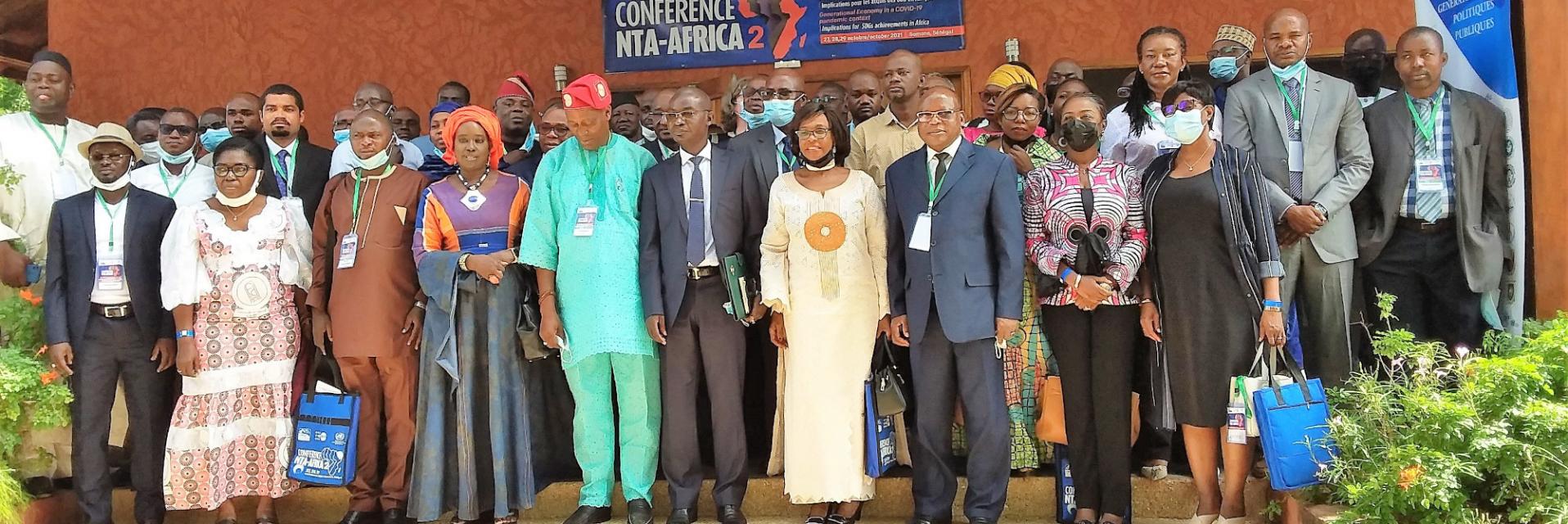Mbour (Senegal), October 28, 2021 - The Government of Senegal launched the second edition of the NTA (National Transfer Accounts) - AFRICA Conference on Wednesday in La Somone with the theme "Generational Economy in the Context of the Covid-19 Pandemic: Implications for the Achievement of the SDGs in Africa".
Initiated by the United Nations Economic Commission for Africa (UNECA) West Africa Sub-Regional Office, in collaboration with the Regional Centre of Excellence in Generational Economics (CREG), the United Nations Population Fund (UNFPA), partner universities and development partners, this conference aims to create a framework for reflection and exchange of innovative ideas between researchers, development actors and policy makers to address population and sustainable development issues in Africa in a context of global health crisis.
In specific terms, this meeting will promote research in generational economics in Africa to address population issues, develop approaches and tools to integrate population dynamics into growth strategies in an inclusive and resilient development perspective, analyse the impacts of the Covid-19 on the demographic and socio-economic situation of Africa and examine ways and means to accelerate the implementation of the SDGs, within the framework of the Decade of Action, to share the latest findings on population and development issues with the research community and policy makers and to foster exchanges between academia and development practitioners on Africa's burning economic and demographic issues.
In his speech at the opening ceremony, the Secretary General of the Ministry of Economy, Planning and Cooperation of Senegal, Mr. Aliou Ndiaye indicated that: "Senegal has made significant efforts to better understand and adopt the demographic dividend".
"Senegal, in the Priority Action Plan (PAP 2) (2019-2023) of the Emerging Senegal Plan (PSE), through strategic objective No. 7 of axis No. 2 "accelerate the pace of demographic transition", pays particular attention to population dynamics and its impact on development," said Mr. Aliou Ndiaye.
For her part, the Director of the ECA Sub-Regional Office for West Africa, Ms. Ngone Diop, said that: "Analysing and understanding how the age structure of the population and its various changes influence economic flows, and by extension, the implications in terms of public policies and investments, in order to respond effectively, this is the objective of the partnership between our three institutions.
Addressing the issue of the Covid-19 pandemic, Ms. Ngone Diop said that "By strongly impacting the key dimensions of the generational economy, namely work, consumption, sharing and saving, the Covid-19 pandemic has severely affected the demographic, economic and social foundation of our countries.
"Labour, the key factor in economic dynamics and intergenerational solidarity, has been hit hard by the impacts of Covid-19. Twenty-nine (29) million jobs have been lost in Africa by 2020, especially among the youth, and thirty-nine (39) million new poor people have been recorded," said the Director of the ECA Sub-regional Office for West Africa.
This conference, which is taking place from 27 to 29 October 2021, brings together about one hundred (100) participants from African universities and elsewhere; from national, regional and international development support institutions.
For more information, please contact: Tahirou Gouro, Communication Officer, CEA- SRO/WA. Email: gouro2@un.org,

